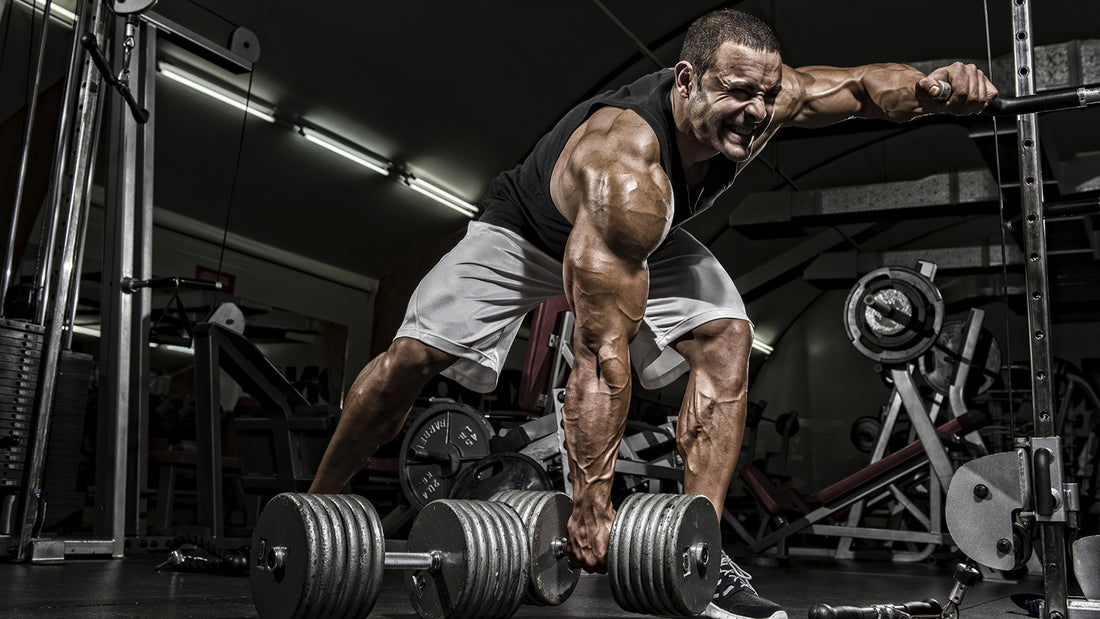
Building Strength with CBD: A Guide to More Effective Exercise
Ashley MKShare
Getting fit and gaining muscle is a difficult and sometimes painful process. The “no pain, no gain” attitude has long been embraced by those wanting to better themselves physically, but there is a better way. The natural health benefits of Cannabidiol (CBD) are becoming more mainstream and quickly gaining popularity with fitness enthusiasts worldwide. Athletes and bodybuilders are discovering the advantages of CBD’s supplemental properties and implementing it before and after exercise for support and recovery.
What Is CBD?
CBD oils, extracts and salves have become staples on the shelves of holistic apothecary shops, whole food stores and even supermarkets, and are already extremely popular treatments for various ailments. What exactly is cannabidiol? CBD is a compound extracted from the cannabis plant and is structurally like endocannabinoids, neurotransmitters in the brain that help regulate body processes such as appetite, mood, memory, immune responses and more. What athletes call “runner’s high” is believed to be caused by endocannabinoids. Studies have shown CBD to be effective at reducing inflammation in the body, which makes CBD and Exercise a growing area of interest for scientists and researchers, especially as positive anecdotal evidence from fitness fanatics already using it rolls in.
Pre-Workout Benefits
Intense exercise has the potential to overstress your body, and without supplemental energy, your blood sugar can drop too low, causing your body to begin pulling nutrients from your muscle tissue. You can’t build muscle while simultaneously breaking it down. The introduction of CBD Rub, extracts, patches or creams can help to prevent muscle deterioration during workouts and lets you maintain energy and focus as you continue your routine. An added bonus is CBD’s anxiety-reducing property, which will boost your motivation to complete that final set of deadlifts.
Recovery Benefits
It’s a well-established fact that exercise causes swelling in the body, which in turn causes soreness in the following days. This occurs when muscle fibers are torn during strenuous activity. Some inflammation is necessary because it activates your system’s restoration processes and makes your muscles regrow stronger, leaner and fitter. Although, if not addressed or given enough time to heal, inflammation can lead to extreme muscle damage as well as injuries like sprains and strains. This can result in severe pain, and you won’t see the physical outcomes you want from your efforts. Studies show CBD is promising for inflammation and pain relief for post-workout recovery as well as exercise related injury. Experts recommend applying topical CBD directly to the affected areas. The solution enters the body through transdermal absorption and penetrates the inflamed tissue without the use of kidney-damaging nonsteroidal anti-inflammatory drugs (NSAIDs). There has been a significant increase in the number of college and professional athletes reporting the use of CBD edibles and topical oils immediately after strenuous exercise with the aim to speed recovery efforts. You too can experience these benefits when you discover CBD for yourself.
Recommended Dosage
Most athletes and gym-goers working to sustain their current level of fitness prefer a CBD dosage that is just enough for maintaining muscle mass and balance. This average is about 25mg daily for healthy individuals. If you plan to train heavily, you may need a dosage closer to 100mg daily to mitigate the increased inflammation and pain from muscle fiber damage. Consider dividing this in half to 50mg twice a day, before and after workouts to help recover from previous sessions and prepare your body for the next one. You should consult your doctor or health care provider if you are interested in adding CBD to your fitness regimen to make sure it is a good fit for your personal health and wellness journey.
CBD research is ongoing with few indications known of long-term efficacy and effects. However, the evidence that does exist has been promising enough to take alternative medicine enthusiasts by storm, and many athletes and non-athletes alike swear by its therapeutic properties.

